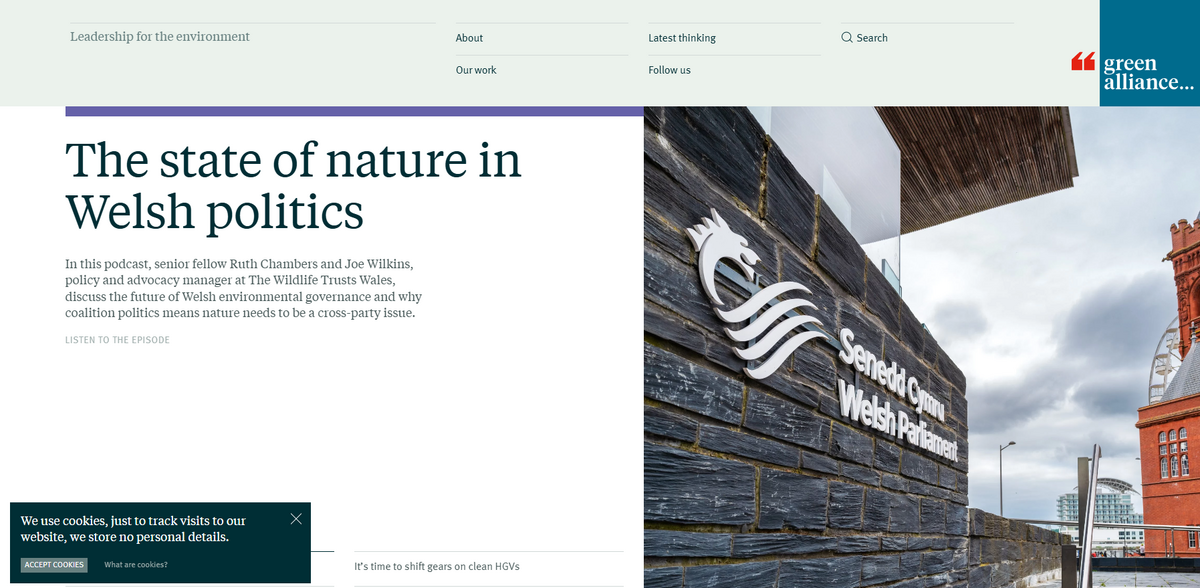What is the Project?
Leadership for the Environment represents an independent think tank and charity focused on ambitious leadership for the environment. Since 1979, Green Alliance has worked with the most influential leaders in business, NGOs, and politics to accelerate political action and create transformative policy for a green, equitable, and prosperous UK. The organization’s mission is very clear… it aims to ensure that environmental challenges become top priorities for decision makers, while simultaneously capturing the social and economic benefits of an effective UK response to both the climate and nature crises. This initiative involves detailed research, informed advocacy, and a commitment to fostering environments where effective policy meets urgent need.
Main Benefit
Key facts and figures highlighting the impact of this project include:
- 1979: The starting point for a long-established record of progressive environmental policy.
- Securing the political mandate for ambitious action across all sectors.
- Advocating decisive change in the new parliament’s first year.
- Shaping the context for transformative environmental policy frameworks.
- Preparing Green Alliance for the future through innovative projects.
In-Depth Research and Expert Advocacy
The approach of Green Alliance is built on in-depth research and expert advocacy under subject themes that are both current and critical. The projects undertaken provide a solid foundation of analysis on environmental issues, policy challenges, and political realities. Light is shed on pressing topics like electric vehicle manufacturing, sustainable nature recovery, and a fast and fair low carbon transition that all add substance to forward-thinking discussions. This blend of research and advocacy works hand in hand to ensure that environmental leadership remains both dynamic and responsive to evolving challenges.
Engaging Events and Dynamic Dialogue
High-profile, specialist events are a key component of the project. These gatherings spark debate and shape the agenda in a way that invites senior decision-makers into meaningful dialogue. Such events create an atmosphere where the urgency of environmental leadership is felt with an immediacy that resonates with the current political and societal climate. As the events unfold, ideas are shared, policies are challenged, and fresh perspectives are brought to light… all contributing to a dynamic forum that bridges theoretical research with practical political engagement.
Key Initiatives and Collaborations
Exploring the work further reveals a series of distinct initiatives designed to address specific environmental challenges:
• Political Leadership: Raising political ambition on the environment, ensuring that the highest levels of government are held accountable for environmental decisions.
• Low Carbon Future: Driving policy innovation for a fast and fair low carbon transition, an initiative aimed at transforming the national economy toward sustainability.
• Natural Environment: Developing new business models and policy directives to facilitate nature recovery and conservation efforts.
• Greening the Economy: Crafting economic strategies for a green future that align environmental imperatives with financial growth.
• Resources: Working on creating a resilient circular economy that reinforces sustainable practices across industries.
Project Impact
- SDG 13 – Climate Action: Promoting strategies to reduce emissions and mitigate the effects of climate change.
- SDG 7 – Affordable and Clean Energy: Pushing for innovation and policy change that support renewable energy production.
- SDG 15 – Life on Land: Advancing policies that aid the recovery and protection of natural ecosystems.
- SDG 8 – Decent Work and Economic Growth: Aligning job creation with sustainable practices to bolster a green economy.
- SDG 9 – Industry, Innovation, and Infrastructure: Highlighting the role of innovation in creating a modern environmental infrastructure.
Insights from Latest Thinking
Recent insights have provided a vibrant and forward-looking perspective on environmental challenges. One example is a report detailing a plan to support electric vehicle manufacturing in the UK. This report outlines how coordinated government action stands to save Britain’s car industry, position the UK as a leader in electric vehicle manufacturing, protect jobs, and capture billions of economic opportunities. There is also a compelling podcast titled “The State of Nature in Welsh Politics,” where experts discuss how coalition politics can unite different parties around this crucial issue. Additionally, a briefing on electric HGVs addresses grid constraints and weight restrictions while recommending practical steps to drive progress in clean transportation technology. Finally, an analysis dubbed “A Recipe for Resilience” makes the case for government support of growth in the plant-based meat sector—arguing that such policies contribute to food security, public health, economic development, and sustainable farming practices.






















